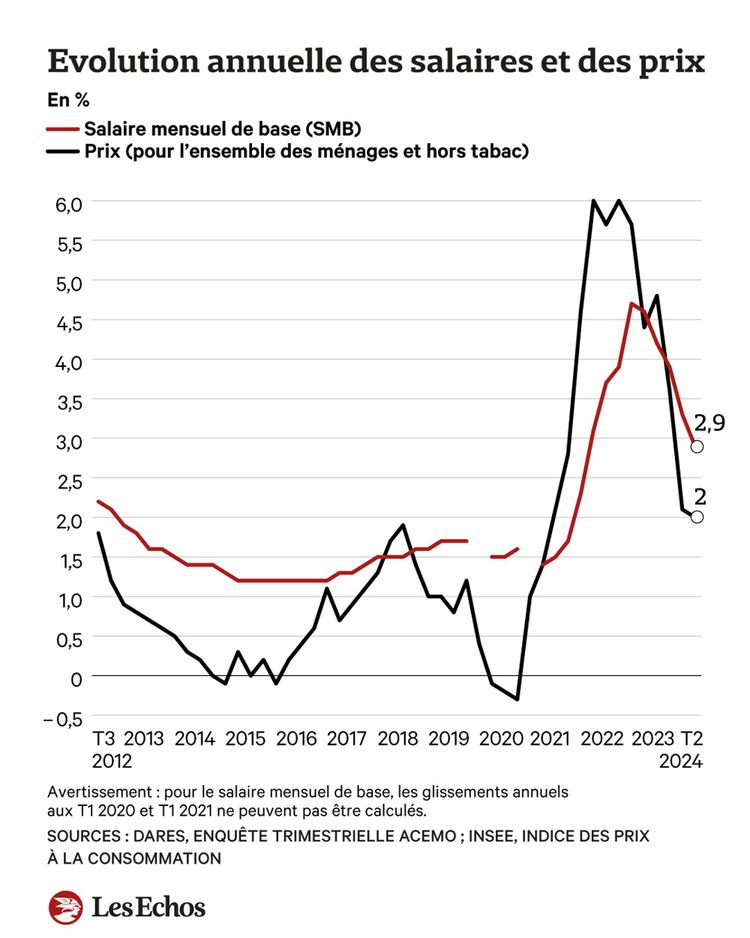- 9 Posts
- 36 Comments

 3·2 months ago
3·2 months agoThank you for the feedback. I had a lot of fun playing with the model (and still have some improvements on my mind that might require porting it outside of Shadertoy)
Is there any part that was especially hard to understand ? I’m trying to make it as clear as possible for developers without a scientific background.

 21·2 months ago
21·2 months agoI can recommend some stuff I’ve been using myself :
- Dolibarr as an ERP + CRM : requires some work to configure initially. As most (if not all) features are disabled by default, it requires enabling them based on what you need. It also has a marketplace with a bunch of modules you can buy
- Gitea to manage codebases for customer projects. It can also do CI but I’ve not looked into it yet
- Prometheus and its ecosystem (mostly promtail and grafana) for monitoring and alerting
- docker mail server : makes it quite easy to self host a full mail server. The guides in their doc made it painless for me to configure dmarc/SPF/other stuff that make e-mail notoriously hard to host
- Cal.com as a self hostable alternative to calendly
- Authentik for single sign-on and centralized permission management
- plausible for lightweight analytics
- a mix of wireguard, iptables and nginx to basically achieve the same as cloudflare proxying and tunnels
I design, deploy and maintain such infrastructures for my own customers, so feel free to DM me with more details about your business if you need help with this

 1·3 months ago
1·3 months agoSur mon instance (dans l’appli et version web) ça n’a pas l’air filtré. Tu es sur que ça ne vient pas de ton instance ?

 2·3 months ago
2·3 months agoCe n’est pas mon analyse, les blocs de citations que j’ai postés sont directement tirés de l’article (d’où mon autre commentaire qui dit que l’article est intéressant malgré le choix de son titre)

 2·3 months ago
2·3 months agoMerci pour la précision. L’article est pas inintéressant non plus. Je trouve juste dingue cette manière de titrer presque a contre courant du fond de l’article

 2·3 months ago
2·3 months agoHum, je crois que tu t’es trompé de post ? :)

 7·3 months ago
7·3 months agole SMB a progressé de 0,8 % et même de 1,4 % pour les ouvriers mieux lotis grâce à la revalorisation automatique du SMIC
Mince alors. Si j’avais su j’aurais fait ouvrier pour être mieux loti que les autres avec mon smic ! C’est à la limite du supportable ce type de tournure…
Les salaires progressent toujours plus vite que les prix, mais les augmentations ralentissent
Je trouve ce titre au mieux imprécis, au pire trompeur… Dans tous les cas c’est tres peu clair sur la nature du phénomène qu’on décrit. Personellement, je comprend en lisant ce titre un truc du style “depuis toujours, les salaires augmentent plus vite que l’inflation”, alors que d’après le contenu de l’article, ça fait seulement depuis 2 ou 3 trimestres :

« Les salaires ont réagi avec retard à l’inflation. En revanche, ils ralentissent presque en même temps que les hausses de prix, ce qui nous a beaucoup surpris », reconnaît Dorian Roucher, chef du département Conjoncture à l’Insee.
Alors que les ménages n’ont guère pu compter sur leurs salaires pour limiter leurs pertes de pouvoir d’achat face au choc inflationniste de ces deux dernières années, les gains qui se profilent en 2024 risquent de décevoir. Dans ses prévisions, l’Institut de la statistique attend une hausse de 2,9 % du SMB pour l’année en cours après un bond de 4,3 % en 2023. Les salaires réels augmenteraient « modestement » en 2024, de 0,6 % selon l’Insee. « La dynamique des salaires cette année ne compenserait donc pas les pertes cumulées par les salariés en 2022 et 2023 qui ont atteint 2,5 % », souligne Dorian Roucher.
On est quand même très loin de l’optimisme que suggère le titre de l’article !

 2·3 months ago
2·3 months agoI’m pretty sure they are actually hosting it. The tech is quite different (cofractal uses urls ending with
{z}/{x}/{y}, while their tile sever uses this stuff that works quite differently)

 6·3 months ago
6·3 months agoThey told me about hosting their own tile server earlier today. I’m really impressed by how fast they moved !
A pull request for a privacy page during the onboarding is in the works, and I’ve been working with them to update the settings page and documentation (with the goal of providing an easy way to switch map providers). They are also working on a privacy policy, and want to ship all of this in a few weeks as part of a single release.
Once again, I’m really impressed with how well they’re handling this

 0·3 months ago
0·3 months agoWith all the botting going on on Reddit, this whole Google AI deal makes me think of the recent paper that demonstrates that, as common sens would suggest, deep learning models collapse when successive generations are trained on the previous generations’ output

 7·3 months ago
7·3 months agonever stopped POSTing, even though I configured nginx to always respond 403 to anything from them for about a year now.
Lol, there are definitely some stubborn user agents out there. I’ve been serving 418 to a bunch of SEO crawlers - with fail2ban configured to drop all packets from their IPs/CIDR ranges after some attemps - for a few months now. They keep coming at the same rate as soon as they get unbanned. I guess they keep sending requests into the void for the whole ban duration.
Using 418 for undesirable requests instead of a more common status code (such as 403) lets me easily filter these blocks in fail2ban, which can help weed out a lot of noise in server logs.

 14·3 months ago
14·3 months agoYour sensitive data and logins are tied to email addresses, which are tied to domains. Lose your domain, someone can access everything.
I recently stumbled upon an article showing how bad this can be when the expired domains were used for important/serious stuff

 20·3 months ago
20·3 months agoI think they do get marked as dead after the Bodis subdomain does not act as a Lemmy instance. But I was wondering if a large number of instances “waking up from the dead” and acting maliciously could cause some trouble. Or would such “undead” instances pose no more threat to the fediverse than the same number of newly created malicious instances ? I’m mainly thinking about stuff like being in a privileged position to DoS most instances at once, or impersonation of accounts that used to actually exist on these “undead” instances

 1·3 months ago
1·3 months agoIs
namedactually running as thebinduser inside the container ? Maybe aUSER bindline below theRUNlines will help.

 4·3 months ago
4·3 months agoI’ll probably look into newer fancier options such as Caddy one day, but as far as I remember Nginx has never failed me : it’s stable, battle tested, and extremely mature. I can’t remember a single time when I’ve been affected by a breaking change (I could not even find one by searching changelogs) and the feature set makes it very versatile. Newer alternatives seem really interesting, but it seems to me they have quite frequent breaking changes and are not as feature rich.
That being said, I’d love to see side-by-side comparison of Nginx and Caddy configs (if anyone wants to translate to Caddy the Nginx caching proxy for OSM I shared earlier this week, that would make a good and useful example), as well as examples of features missing from Nginx. This may give me enough motivation to actually try Caddy :)
(edit : ad->and)

 1·3 months ago
1·3 months agoI don’t use nginx-proxy-manager, but if you want to share what you tried, I will try to help you figure what’s not working

 1·3 months ago
1·3 months agoIt’s the clients (web/android app, probably iOS too) that are making these requests.
To the best of my knowledge, the Immich server inside the container is not making requests to the outside. It is merely sending a
style.jsonto the client displaying a map, which then fetches tiles from the Cofractal URL inside this JSON.

 2·3 months ago
2·3 months agoOr you can quite easily configure nginx as your personal caching proxy with an arbitrarily long TTL/retention duration (you can check out my follow-up post for instructions on doing that)

 3·3 months ago
3·3 months agoI used to wonder what kind of nerd notices this kind of thing, now I’m one of them
Edit : If you want to join us :
- you can run Pi-hole which is a self-hosted DNS server that allow monitoring/blocking DNS requests from devices configured to use it. In its default configuration, it acts as a network wide ad/tracker blocker.
- On Android, you can install Rethink DNS. This will configure itself as a VPN on your device, forcing all traffic to go through it. This allows it to act as an on-device firewall that allow monitoring/blocking DNS requests and TCP/UDP connections. This is similar to the features of Pi-hole, but the fact that it’s on-device allows it to be app aware : the logs will detail which app is responsible for which connection, and the allow/block rules can be app-dependent. The app honestly goes beyond all my expectations :
- it does a good job at being easy to use by default
- it is very configurable which gives you a lot of control if you want/need/can handle it
- You can configure it to route traffic (after applying firewall rules) to a Wireguard VPN or through Orbot. (Apps that act as VPNs are not compatible with each other : you can only have one active at a time)
- You can even configure several Wireguard interfaces at the same time, and route specific apps through specific tunnels





I did not expect such a detailed code review (the fact that you wrote it on mobile impresses me even more), but I strongly agree with everything you mentioned. I think I was so caught up learning GLSL and its quirks, then playing and experimenting with the simulation, that I “forgot” my coding standards. Anyway, I’ll make sure to take some time to update both the code and the article following your recommandations.